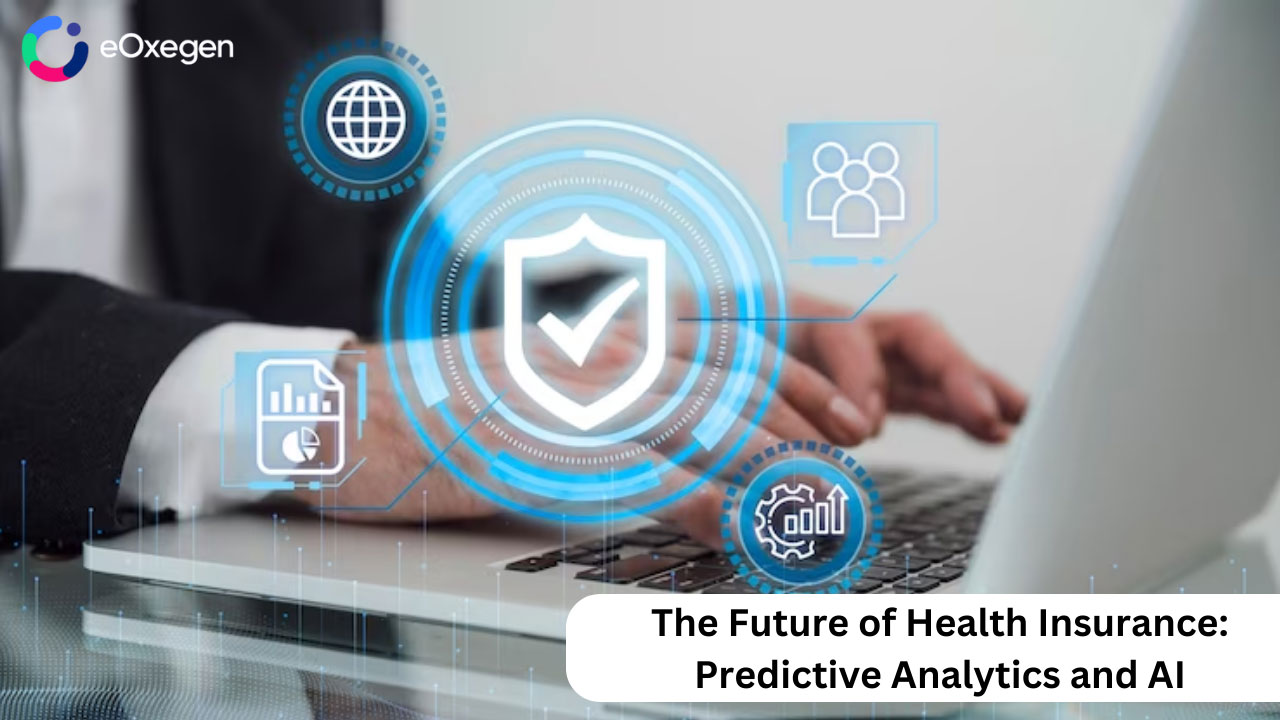The Future of Health Insurance: Predictive Analytics and AI
25th April, 2023

Health insurance is a crucial aspect of healthcare, providing financial protection to individuals and families against the high costs of medical care. The healthcare industry is evolving rapidly, and one of the most significant changes we are witnessing is the adoption of predictive analytics and artificial intelligence (AI).
Health insurance is essential for individuals and families to access medical care without worrying about the financial burden it might place on them. The cost of healthcare in the United States has been rising steadily over the years, and it can be challenging for individuals to pay for medical bills without insurance coverage. Health insurance provides peace of mind and financial security, allowing people to seek medical care when they need it.
Overview of Predictive Analytics and AI
Predictive analytics is the use of data, statistical algorithms, and machine learning techniques to identify the likelihood of future outcomes based on historical data. AI, on the other hand, refers to the simulation of human intelligence in machines that are programmed to think and learn like humans. Predictive analytics and AI have been used in various industries, including finance, marketing, and customer service. In the healthcare industry, these technologies have the potential to transform health insurance by improving the accuracy of risk assessment, predicting healthcare costs and utilization, and personalizing healthcare and insurance plans.
The Current State of Health Insurance
The current health insurance system faces several challenges, including rising healthcare costs, a lack of transparency in pricing, and limited access to affordable coverage. Traditional methods for assessing risk and determining premiums have limitations, which can result in inaccurate risk assessments and higher premiums for individuals who are not at high risk. There is a need for innovation in the health insurance industry to address these challenges and provide affordable and accessible coverage to all individuals.
The Potential of Predictive Analytics and AI in Health Insurance
Predictive analytics and AI have the potential to revolutionize the health insurance industry by improving the accuracy of risk assessment, predicting healthcare costs and utilization, and personalizing healthcare and insurance plans. These technologies can help insurers design personalized policies based on individual risk profiles and identify high-risk individuals and populations. Predictive analytics and AI can also enable insurers to offer targeted preventative care and interventions to help reduce healthcare costs.
Advancements in Predictive Analytics and AI in the Insurance Sector
-
Improved Accuracy of Predictive Models
Advancements in machine learning algorithms have led to more accurate predictive models. This has improved the ability of insurers to accurately predict future healthcare costs and utilization, and identify high-risk individuals and populations.
-
Real-time Data Analysis and Decision-Making
The ability to analyze data in real-time allows insurers to make informed decisions about policy design, premium pricing, and fraud prevention.
-
More Sophisticated Machine Learning Algorithms
Advancements in machine learning algorithms have also led to more sophisticated models that can analyze complex data sets and make more accurate predictions.
-
Increased Use of Natural Language Processing and Sentiment Analysis
Natural language processing and sentiment analysis are being used to analyze unstructured data sources such as social media, which can provide valuable insights into the health needs of different populations.
The Future of Health Insurance with Predictive Analytics and AI
The potential benefits of using predictive analytics and AI in health insurance are clear for both insurers and policyholders. By leveraging big data and advanced algorithms, health insurers can make better decisions about how to design policies, set premiums, and predict healthcare costs. Policyholders can benefit from more personalized policies, better preventative care, and potentially lower costs overall.
Governments and regulatory bodies will play a critical role in shaping the future of health insurance with predictive analytics and AI. They will need to create frameworks and guidelines to ensure that privacy concerns are addressed and that algorithms are fair and unbiased. They will also need to ensure that technical challenges are overcome and that insurers have access to the necessary data and tools to leverage predictive analytics and AI effectively.
Predictions for the future of health insurance with predictive analytics and AI are optimistic. As machine learning algorithms become more sophisticated and natural language processing and sentiment analysis are used more widely, insurers will be able to make better decisions about how to design policies and predict healthcare costs. Insurers may also be able to use blockchain technology to securely share data and improve fraud detection and prevention.
Wrapping Up
The future of health insurance is closely linked to the development and implementation of predictive analytics and AI. By using these technologies, health insurers can make better decisions about how to design policies, set premiums, and predict healthcare costs. Policyholders can benefit from more personalized policies, better preventative care, and potentially lower costs overall.
The future of health insurance is closely linked to the development and implementation of predictive analytics and AI. By using these technologies, health insurers can make better decisions about how to design policies, set premiums, and predict healthcare costs. Policyholders can benefit from more personalized policies, better preventative care, and potentially lower costs overall.
Overall, the future of health insurance with predictive analytics and AI is bright, and it has the potential to revolutionize the way we think about healthcare and insurance. By leveraging big data and advanced algorithms, we can create a more efficient and effective healthcare system that benefits everyone.
Recent Articles
- How do Big Insurers Engage with the New-Age InsurTech Companies?
- Insurance Management System Integration: Maximizing Efficiency and Performance
- Will Blockchain Technology Reshape the Insurance Market?
- The Future of Health Insurance: Predictive Analytics and AI
- Buy or Build Insurance Software? A Game-Changing Question in Insurance Industry